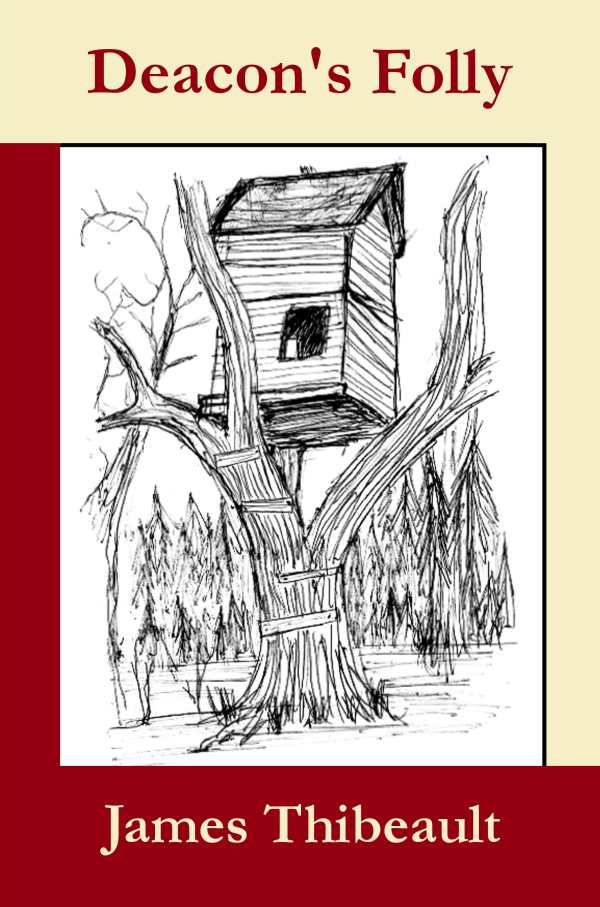Deacon's Folly
An intriguing and poignant character study and psychological healing journey that is both tragic and triumphant.
Deacon’s Folly by James Thibeault explores the fallout of domestic violence and sudden loss as a man and a boy clash in tumultuous expressions of guilt, forgiveness, bitterness, revenge, and rage, exposing haunting truths and healing through memories.
A small backwoods town with dark secrets is about to get shaken up. Its resident whipping boy has gained unlikely allies, and will soon reclaim his tragic legacy. At fourteen, Devon doesn’t question much about his life. Living in a rickety backyard tree house under the cruel and watchful eye of Franklin Audette, he works hard and lives for chance encounters with Mr. Audette’s daughter, Caroline. But when the local parish deacon takes a special interest in uncovering Devon’s life before the Audettes, the entire town is rocked to its foundation.
Using first-person narration, the story follows Devon as he evolves from a beaten-down simpleton into a complex and troubled young man who cries at the sight of cranberries floating in the bog and who talks to the moon. His change is gradual and rife with setbacks and roadblocks, usually in the form of the drunken Mr. Audette. Seeing the townsfolk through Devon’s unassuming eyes, and with his often fascinating and unbiased commentary, adds an element of calm and continuity to the injustice and often violent mistreatment depicted throughout.
Although the book is intended for young adults, its dire circumstances and weighty themes seem more appropriate for mature audiences, such as adults or older teens. Twelve-year-old Caroline is the book’s youngest player, but she is never childlike. She appears more grown-up at times than even her father, who refers to her as “woman” and expects her to cook, clean, and mind the house while he drinks and misbehaves. There is some confusion as to whether Devon joins the Audettes when he is six or eight years old, but either age is tender, and the lack of a positive role model or clear resolution may be confusing for younger audiences.
The titular deacon, himself a troubled soul, assists Devon through clandestine trancelike meditation sessions in which they explore his buried memories; therapists and child advocates might take offense at the blame and abuse that follows Devon. Some Christian imagery appears alongside Devon’s contemplations and musings, including the irreverent substitution of moonshine as holy water and Devon’s amusing thoughts on the trinity. The tone in such moments is more explorative and contemplative than doctrinal, and these scenes seem authentic to small-town life.
An intriguing and poignant character study and psychological healing journey, Deacon’s Folly is both tragic and triumphant, highlighting the resilience of the human mind and simple joys found in the midst of adversity.
Reviewed by
Pallas Gates McCorquodale
Disclosure: This article is not an endorsement, but a review. The publisher of this book provided free copies of the book and paid a small fee to have their book reviewed by a professional reviewer. Foreword Reviews and Clarion Reviews make no guarantee that the publisher will receive a positive review. Foreword Magazine, Inc. is disclosing this in accordance with the Federal Trade Commission’s 16 CFR, Part 255.

